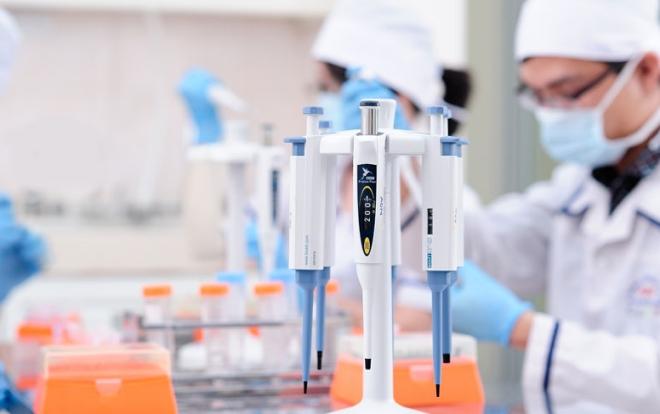Resolution, recovery and reinvention: How Australia can help Southeast Asia respond to Covid-19
Posted By Huong Le Thu on May 20, 2020 @ 13:30

After the Covid-19 pandemic is over, we are likely to face a world in which the nations with strong foundations are stronger and the weak are further weakened. The World Bank has already predicted [1] that 11 million additional people in East Asia and the Pacific region will fall below the poverty line, and other economic performance predictions are even more dire. In Southeast Asia, in particular, socioeconomic disparities are likely to deepen. The repercussions of Covid-19 are, in many ways, already undoing the regionalism efforts that ASEAN has been pursuing for decades.
So far, the Covid-19 death toll hasn’t exceeded the total average annual deaths from air pollution, traffic accidents, diabetes, heart disease, regular flu and standard natural disasters such as typhoons, floods and droughts. In better-case scenarios, we may see limited stress on governments, an economic slowdown and some intrusions against personal privacy as a result of Covid-19. Tighter controls over citizens may well remain long after the pandemic, in which case political activism, already chronically challenged in the region, will suffer further damage.
However, this pandemic has the potential to trigger far worse scenarios. Southeast Asia is one of the world’s most densely populated regions, so in many places social-distancing measures are simply not practicable. The region is also home to large numbers of refugees, displaced persons, stateless people and unreported migrants. All of them are highly vulnerable, and their limited access to medical facilities raises the potential for worsening the crisis. See here [2] for analysis of the perennial threats to, challenges to the governance of and economic vulnerabilities of the region, and how they are exacerbated by the crisis.
How can the Australian government prioritise its response and make the most difference?
It’s important to remember that this crisis is affecting Southeast Asian nations differently and Canberra should understand those differences and pay close attention to developments across the region. While vulnerabilities are high, there have been also a number of strong performances worth noting. For instance, Vietnam has been the first country in the region to ease social-distancing restrictions and gradually open up its economy. Indonesia, on the other hand, may have to wait a while before attempting to do so.
Australia should actively and regularly communicate with its Southeast Asian neighbours individually as well as through broader ASEAN Plus expert discussions on Covid-19. Canberra should also closely monitor other security challenges beyond the virus.
There are three basic phases of the response to the Covid-19 crisis: resolution, recovery and reinvention of political, economic and healthcare systems. Canberra needs to be thinking of them all simultaneously. In considering how to best assist its immediate neighbourhood, Australia should lay out a strategy for its engagement within that framework.
We’re still in the resolution phase, but we need to already be planning specific steps for recovery. Resolving this crisis requires healthcare assistance, including help with personal protective equipment, ventilators, other medical support and a vaccine if and when it becomes available.
Right now, Australia could offer test kits to Indonesia, which has an extremely low testing ratio and currently has the highest death rate in the region. Acting early could help reduce the number of people infected and avoid Italy’s or the US’s coronavirus trajectories.
Australia, like any other country, should also share its knowledge of best practices in detecting the virus, containing the number of infections, treating infected people and researching this novel virus. Not all countries in the region have the capacity to conduct research to develop a vaccine. Australia’s CSIRO is a frontrunner and may be one of the first organisations to deliver a vaccine that’s accessible to all, despite economic disparities among nations. That expertise is one of Australia’s great strengths and an asset that it needs to share with the region and the world.
The recovery phase will include the continuation of medical and scientific work but will also have a heavy emphasis on economic revival. The speed of the recovery will depend greatly on how effective the earlier phase has been. This will be a global project and it will depend on the health of many other major economies. Given the interconnectedness of the global economy, Australia, like other middle powers, should also make sure that access to economic institutions and solutions is equal for all and do its part in leaving no vulnerable people behind—at home or abroad.
Beyond recovery is reinvention, meaning the modernisation of regional economies. Southeast Asia before Covid-19 was a global hotspot for start-ups and innovation. The region will need to go through a rapid digitalisation in an acceleration of that already prevalent trend. Australia should prioritise the region’s technological and scientific development, and help accelerate digitalisation, which will increase countries’ resilience to and preparedness for future challenges.
Australia can make a difference in helping make access to technology and connectivity more equal and, in so doing, allow the continuation and renewed growth of education and economic activities.
This post is adapted by the author from her chapter in volume 1 of ASPI’s After Covid-19 [2] series, ‘Southeast Asia’, which examines the ways in which the pandemic is exacerbating the perennial threats, challenges to governance and economic vulnerabilities in the region.
Article printed from The Strategist: https://aspistrategist.ru
URL to article: /resolution-recovery-and-reinvention-how-australia-can-help-southeast-asia-respond-to-covid-19/
URLs in this post:
[1] predicted: https://www.worldbank.org/en/news/press-release/2020/03/30/east-asia-and-pacific-countries-must-act-now-to-mitigate-economic-shock-of-covid-19
[2] here: https://www.aspistrategist.ru/report/after-covid-19-australia-and-world-rebuild-volume-1
Click here to print.